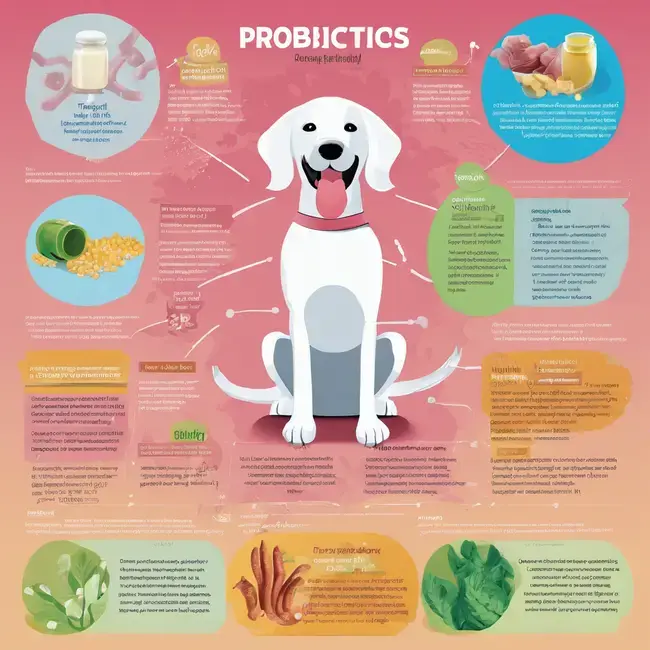Is Salmon Good for Dogs? Discover 9 Benefits of Salmon

- Can dogs eat salmon?
- Is salmon good for dogs?
- How much salmon oil should you give to your dog?
- Nutritional value of salmon for dogs
- Benefits of salmon for dogs
- How to cook salmon for dogs
- Is salmon oil good for dogs?
- What is the best salmon oil for dogs?
- Is salmon good for dogs everyday?
- Is salmon skin good for dogs?
- Can dogs eat cooked salmon?
- Is raw salmon good for dogs?
- Salmon and rice for dogs
- Is wild Alaskan salmon oil good for dogs?
- Other safe foods, fruits, and vegetables for dogs
- Conclusion, Is salmon good for dogs?
- Frequently Asked Questions (FAQs)
- Resources
This post may contain affiliate links, meaning I may earn a commission if you make a purchase, at no extra cost to you. I only recommend products I trust. Thank you for your support.
Salmon is a popular fish that is not only delicious but also packed with essential nutrients. It is often a staple in human diets, but what about our pets? Can dogs eat salmon?
In this article, we will explore the question, is salmon good for dogs? and delve into the nutritional value of salmon for dogs.
We will also discuss the benefits of feeding salmon to dogs, how to cook salmon for dogs, and the best salmon oil for dogs.
So, let’s dive in and discover the wonderful world of salmon for dogs!

Can dogs eat salmon?
Yes, dogs can eat salmon, but make sure the salmon is cooked thoroughly to eliminate any potential parasites or bacteria that could be harmful to your dog.
Salmon is a great source of protein and omega-3 fatty acids, both of which are essential for a dog’s health.
However, choose fresh, boneless salmon, and remove any bones from the salmon before feeding it to your dog, as they can pose a choking hazard or cause internal injury.
Is salmon good for dogs?
Yes, salmon is good and safe for dogs. It contains high-quality protein which is essential for building and repairing tissues, producing enzymes and hormones, and supporting a healthy immune system.
It also contains omega-3 fatty acids, such as EPA and DHA, which have anti-inflammatory properties and can help improve skin and coat health.
These fatty acids also support brain development and cognitive function in dogs, making salmon a great option for puppies and senior dogs alike.
Additionally, salmon is rich in vitamins D and B12, as well as minerals like selenium and potassium, which are important for maintaining overall health.
How much salmon oil should you give to your dog?
The recommended amount of salmon oil for dogs depends on their size and weight.
The recommended daily dosage is around 100 mg/kg of body weight of total EPA/DHA. For example, a 50 lbs dog would need about 2270 mg of salmon oil per day.
It’s important not to exceed the maximum daily dose based on the dog’s weight to avoid potential side effects such as vomiting, diarrhea, altered platelet function, weight gain, and altered immune function.
As a general guideline, you can use the following dosage for salmon for dogs:
- For dogs up to 25 lbs: 1 soft chew daily
- For dogs between 25-75 lbs: 2 soft chews daily
- For dogs over 75 lbs: 3 soft chews daily
Additionally, it’s a good idea to start with a smaller amount and gradually increase the dosage to avoid any digestive upset.
Nutritional value of salmon for dogs
Salmon is a nutritional powerhouse for dogs. It is packed with essential nutrients that can contribute to their overall health and well-being.
Adding salmon to your dog’s diet can help ensure they are receiving these important nutrients, which contribute to their overall health and well-being.
Here are some of the key nutrients found in salmon for dogs:
- High-quality protein (mostly in wild-caught or high-quality farmed salmon)
- Omega-3 fatty acids (For instance, a 6 oz serving of salmon contains between 2200-3800 mg of EPA/DHA)
- Vitamins (A, D, B12, B6)
- Minerals (selenium, phosphorus, potassium)
- Low carbohydrates
- Moderate calorie content
Benefits of salmon for dogs
Feeding salmon to dogs can provide a wide range of benefits.
Here are some key benefits of including salmon for dogs:
1. Healthy skin and coat
The omega-3 fatty acids found in salmon for dogs can help improve skin and coat health, reducing dryness, itching, and inflammation.
2. Supports joint health
Salmon’s anti-inflammatory properties can benefit dogs with arthritis or joint pain, improving mobility and reducing discomfort.
3. Improves cognitive function
The omega-3 fatty acids in salmon for dogs support brain development and cognitive function, promoting mental sharpness and overall brain health.
4. Promotes cardiovascular health
The Omega-3 fatty acids in salmon for dogs can contribute to cardiovascular health in dogs by supporting heart function, promoting healthy blood flow, and reducing the risk of heart disease.
5. Allergy relief
Salmon for dogs is a hypoallergenic protein source, making it a great option for dogs with food sensitivities or allergies.
6. Weight management
Salmon for dogs is low in calories and fat, making it a suitable choice for dogs that need to maintain or lose weight.
7. Boosts immune system
The vitamins and minerals in salmon for dogs help support a healthy immune system, reducing the risk of illness and disease.
8. Increased energy
The high protein content in salmon provides dogs with the energy they need to stay active and maintain muscle mass.
9. Improved digestion
The omega-3 fatty acids in salmon for dogs can help reduce inflammation in the digestive tract, promoting healthy digestion and preventing gastrointestinal issues.

How to cook salmon for dogs
Cooking salmon for your dog is a simple and straightforward process.
Here’s how you can prepare salmon for dogs:
- Start by choosing fresh salmon. Wild-caught salmon is generally considered to be the best option, as it is less likely to contain contaminants or additives.
- Remove any bones from the salmon fillets to prevent choking hazards or internal injury.
- Preheat your oven to 375°F (190°C).
- Place the salmon fillets on a baking sheet lined with parchment paper.
- You can season the salmon with a small amount of dog-friendly herbs or spices, such as parsley or dill. Avoid using salt, as it can be harmful to dogs in large quantities.
- Bake the salmon for approximately 15-20 minutes or until it is cooked through and flakes easily with a fork.
- Allow the salmon to cool before serving it to your dog.
- Serve the salmon in small, bite-sized pieces alongside your dog’s regular food or as a special treat.
Is salmon oil good for dogs?
Yes, salmon oil is good for dogs. It is a rich source of omega-3 fatty acids such as EPA and DHA which have anti-inflammatory properties and can help improve skin and coat health, reduce allergies and itching, support cognitive function, and promote a healthy immune system.
Salmon oil can also aid in joint health and cardiovascular health in dogs. However, it’s important to note that not all salmon oils are created equal.
It’s best to choose a high-quality salmon oil specifically formulated for dogs to ensure it is free from contaminants and provides the optimal amount of omega-3 fatty acids.
What is the best salmon oil for dogs?
When it comes to choosing the best salmon oil for dogs, there are a few factors to consider.
- Look for a salmon oil that is specifically formulated for dogs and is made from high-quality, wild-caught salmon.
- The oil should be processed using a method that preserves the omega-3 fatty acids and removes any potential contaminants.
- It’s also important to check the label for the amount of EPA and DHA, as these are the key omega-3 fatty acids that provide the most health benefits.
Here are some top recommendations for the best salmon oil for dogs:
1. Zesty Paws Wild Alaskan Salmon Oil
This is considered the best all-round salmon oil, offering essential Omega-3 fatty acids that support healthy skin, a shiny coat, and overall wellness.
2. Grizzly Salmon Oil
Known as the best premium salmon oil, it provides high levels of Omega-3 and Omega-6 fatty acids for skin, coat, joint, and immune system support.
3. American Journey Salmon Oil
Regarded as the best value salmon oil, it offers significant benefits for skin, coat, joint health, and overall wellness, providing a cost-effective option for pet owners.
4. Iceland Pure Salmon Oil
Considered the best unscented salmon oil, it offers the benefits of salmon oil without the strong fishy odor, making it a favorable choice for dogs sensitive to strong scents.
5. Life Line Premium Salmon Oil
Known as the best bulk salmon oil, it provides a cost-effective solution for pet owners looking to purchase salmon oil in larger quantities.
6. Amazing Omega Wild Alaskan Salmon
Considered the best salmon oil capsules, providing a convenient and mess-free way to administer salmon oil for small dogs.
Is salmon good for dogs everyday?
Yes, feeding your dog a little bit of salmon every day is likely okay if it’s given as a dietary addition. However, it’s crucial to monitor the overall dietary balance and avoid excessive intake.
When adding salmon as a dietary addition to your dog’s complete and balanced diet, it’s recommended to follow the 10 percent rule, refraining from adding more than 10% of their daily food intake.
While salmon provides numerous health benefits, it’s important to remember that it should not be the sole source of nutrition for your dog.
Variety is key, and a well-rounded diet that includes a mix of protein sources, fruits, vegetables, and grains (if appropriate for your dog) is essential for your dog’s overall health.
Is salmon skin good for dogs?
Yes, salmon skin is good and safe for dogs if given in moderation. Make sure the salmon skin is thoroughly cooked to avoid any potential parasites or bacteria.
Additionally, be mindful of the portion size, as too much salmon skin can be high in fat and calories, which can lead to weight gain or digestive issues.
Don’t forget to remove any bones from the salmon skin before feeding it to your dog to prevent choking hazards or internal injury.
Can dogs eat cooked salmon?
Yes, dogs can eat cooked salmon but make sure it is thoroughly cooked and flakes easily with a fork, and serve without any seasoning, spices, or added ingredients that could be harmful to dogs.
Cooking salmon thoroughly helps eliminate any potential parasites or bacteria that could be harmful to your dog.
Remember to remove any bones from the cooked salmon before serving it to your dog, as they can pose a choking hazard or cause internal injury.
Is raw salmon good for dogs?
No, raw salmon is not good for dogs. Raw salmon can contain a parasite called neorickettsia helminthoeca, which can cause a condition called salmon poisoning disease in dogs.
This condition can be life-threatening if left untreated. Cooking salmon thoroughly helps eliminate the parasite and any potential bacteria, making it safe for dogs to consume.
It’s always best to err on the side of caution and feed your dog cooked salmon to ensure their safety and well-being.
Salmon and rice for dogs
Salmon and rice can be a healthy and balanced meal option for dogs. The combination of salmon and rice provides a good balance of protein, carbohydrates, and essential nutrients.
Salmon is a great source of high-quality protein, omega-3 fatty acids, and various vitamins and minerals. Rice, on the other hand, is easily digestible and provides carbohydrates for energy.
When preparing salmon and rice for your dog, make sure the salmon is cooked thoroughly and the rice is plain, without any seasonings or additives.
Is wild Alaskan salmon oil good for dogs?
Yes, wild Alaskan salmon oil is considered to be one of the best options for dogs. Wild Alaskan salmon oil is typically less contaminated with heavy metals, toxins, and pollutants compared to farmed salmon.
It is also a great source of omega-3 fatty acids, including EPA and DHA, which provide numerous health benefits for dogs.
When choosing wild Alaskan salmon oil for your dog, look for a high-quality product that is specifically formulated for dogs and undergoes a rigorous purification process to remove any potential contaminants.
Some reputable brands of wild Alaskan salmon oil for dogs include Zesty Paws, Grizzly, and Nordic Naturals.
Other safe foods, fruits, and vegetables for dogs
In addition to salmon, there are several other safe foods and fruits that you can include into your dog’s diet.
1. Broccoli
Broccoli is safe for dogs to eat in small amounts, providing fiber and vitamin C, but should be served cooked to aid in digestion.
2. Bananas
Bananas are a good source of potassium, vitamins, and fiber. They make for a healthy, low-calorie treat for dogs.
3. Pineapple
Pineapple contains vitamins, minerals, and fiber, but should be given in moderation due to its natural sugar content.
4. Shrimp
Shrimp for dogs is a good source of protein and nutrients for dogs, but should be served plain, without any seasoning or sauce.
5. Cantaloupe
cantaloupe is rich in vitamins and hydration, it can be a refreshing and nutritious treat for dogs when served in moderation.
6. Raw Chicken
While dogs can consume raw chicken, it’s important to handle it carefully to avoid contamination and consult a veterinarian before adding it to the diet.
7. Celery
Celery is a low-calorie, crunchy snack for dogs, rich in vitamins and antioxidants, but it’s recommended to serve it chopped to prevent choking.
8. Cauliflower
Cauliflower is safe for dogs in moderation, providing vitamins and fiber, but it’s advisable to serve it cooked to aid in digestion.
9. Olive Oil
Olive oil can be beneficial for a dog’s coat and skin health when added in small amounts to their food.
10. Peas
Peas are a good source of vitamins, minerals, and protein, peas can be a healthy addition to a dog’s diet when served plain and in moderation.
11. Rice
Plain, cooked rice can be a gentle, easily digestible option for dogs with upset stomachs, offering relief from digestive issues.
Conclusion, Is salmon good for dogs?
It’s evident that salmon can be a beneficial addition to a dog’s diet, providing essential omega-3 fatty acids and protein, providing numerous health benefits and essential nutrients.
From promoting healthy skin and coat to supporting cognitive function and joint health, the omega-3 fatty acids found in salmon can help keep your dog happy and healthy.
However, it’s crucial to exercise caution regarding portion control, proper cooking, remove bones, and overall dietary balance when incorporating salmon for dogs, ensuring that it is served in moderation to avoid potential health risks associated with excessive consumption.
Consult with your veterinarian near you to determine the appropriate amount of salmon or salmon oil for your dog based on their individual needs.
By incorporating salmon into your dog’s diet, you can enhance their overall well-being and support their health for years to come.
Top trending articles:
- Is tuna good for dogs to eat?
- Is chicken meal good for dogs?
- Best probiotics for dogs
- The menopause diet to lose weight
- Get rid of belly fat forever
- 7-day PCOS diet plan
- The 90-30-50 diet plan
- 7-day bone broth diet plan
- 7-day diet plan for high blood pressure
- 1600-calorie meal plan for weight loss
- Foods for pregnancy
- Elimination diet plan
Frequently Asked Questions (FAQs)
Can dogs eat canned salmon?
Yes, dogs can eat canned salmon, but it’s important to choose a variety that is low in sodium and does not contain any added seasonings or spices. Additionally, make sure to check for any bones and remove them before feeding canned salmon to your dog.
Can dogs eat smoked salmon?
No, it is best to avoid feeding dogs smoked salmon. Smoked salmon is often high in sodium and can contain additional seasonings or additives that may be harmful to dogs. Stick to plain, cooked salmon to ensure your dog’s safety and well-being.
Can dogs eat frozen salmon?
Yes, dogs can eat frozen salmon as long as it is cooked thoroughly. Freezing does not eliminate potential parasites or bacteria, so make sure to cook the salmon before feeding it to your dog.
Can dogs eat salmon skin from sushi?
It is not recommended to feed dogs salmon skin from sushi. Sushi salmon skin may contain additional seasonings, such as soy sauce or wasabi, which can be harmful to dogs. Stick to plain, cooked salmon skin and remove any bones before feeding it to your dog.
Can dogs eat salmon patties?
Yes, dogs can eat salmon patties, but it’s essential to ensure they are prepared without added ingredients that can be harmful to dogs, such as onions, garlic, or excessive spices.




